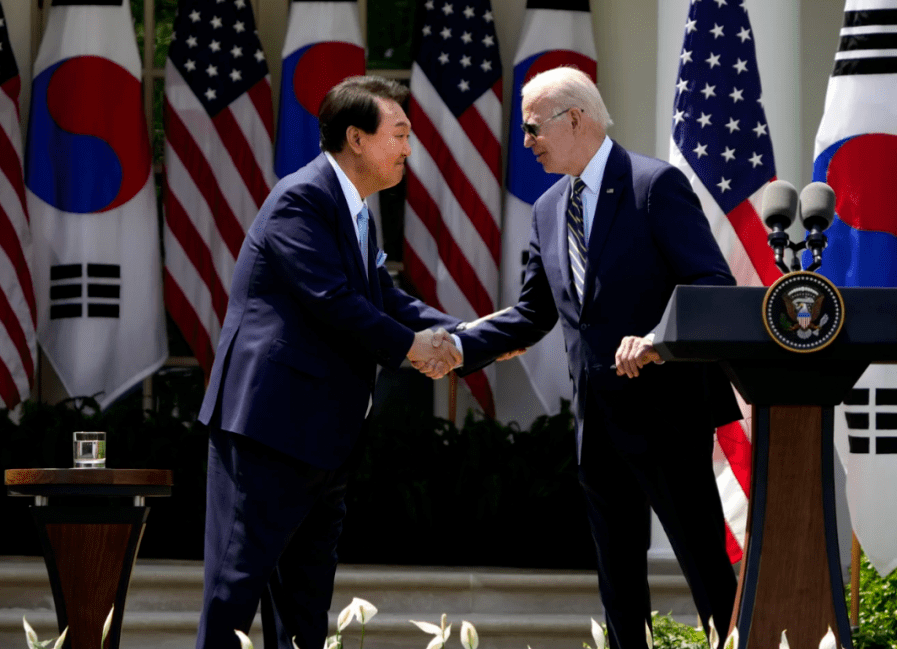Liang Qianyu, Doctoral Candidate at the Institute of Area Studies, Peking University
Zhai Kun, Professor at School of International Studies; Deputy Director of Institute of Area Studies, Peking University
May 11, 2023
Generally speaking, the relationship between China and Southeast Asian countries is positive, which adds a degree of certainty in an uncertain world. However, if President Ferdinand Marcos Jr. loses his way over the South China Sea and Taiwan, new uncertainty will come.
Jade Wong, Senior Fellow, Gordon & Leon Institute
May 04, 2023
Chinese President Xi Jinping’s outreach to the president of Ukraine, Volodymyr Zelenskyy, could be a game-changer. The call was welcomed by Zelenskyy, who called it “long and meaningful.” As Beijing steps into its role as a global peacemaker, the world is taking notice.
Philip Cunningham, Independent Scholar
May 03, 2023
Some seventy diplomats recently gathered in China’s Great Hall in efforts to increase international cooperation, and it’s imperative not to miss the power of visual pomp used as a tool of persuasion, as evidenced in the televised coverage of the event.
Brian Wong, Assistant Professor in Philosophy and Fellow at Centre on Contemporary China and the World, HKU and Rhodes Scholar
May 03, 2023
China’s recent diplomatic wins could be indicative of the type of world it hopes to build - one where a number of stakeholders have more equal footing rather than being led by one powerful hegemon.

Li Ning, Research Fellow at Center for Asia-Pacific Studies, Shanghai Institutes for International Studies
May 03, 2023
No leader of a U.S. ally has ever made such a show of fidelity before a trip to Washington. Yoon swiftly patched up relations with Japan, announced military aid to Ukraine and made comments on Taiwan.
Wu Baiyi, Former Director of the Institute of European Studies, Chinese Academy of Social Sciences
May 03, 2023
Europe faces three imperatives: It needs to seize the opportunity presented by China’s post-pandemic reopening; it needs China as a stabilizer, in light of the unpredictable prospect of peace in Eastern Europe; and it needs to rebalance its relationship with the United States because of dramatic international shifts in recent years.

Zhou Zhiwei, Senior Research Fellow and Executive Director of Center for Brazilian Studies, CASS
May 03, 2023
Brazil’s president indicates that economic recovery in Latin America is likely to be driven by China. Existing connections are deep and will be resilient against political or international interference. Renewed South-South cooperation is one hopeful outcome.

Wu Zhenglong, Senior Research Fellow, China Foundation for International Studies
Apr 30, 2023
In his visit to China, the French president Emmanuel Macron presented views at odds with some others in Europe. America’s European allies appear to lack the mutual trust needed to reach key compromises. With Macron’s advocacy in play, unity may be difficult to achieve.
Joseph Vaughan, Masters Student, Johns Hopkins University School of Advanced International Studies
Apr 28, 2023
The world's transition to renewable energy brings geopolitical risks as countries compete for control over critical minerals like cobalt. With 70% of the world's cobalt output produced in the Democratic Republic of the Congo, and expected growth in demand from battery technology proliferation, China has consolidated its market position in mining and refining, leading U.S. policymakers to view cobalt as a potential supply chain vulnerability.
Sajjad Ashraf, Former Adjunct Professor, National University of Singapore
Apr 28, 2023
The Indian Ocean, as a maritime crossroads of international trade, is a key area of competition between China and the United States.
Back to Top

- China-US Focus builds trust and understanding between the U.S. and China through open dialogue among thought leaders.
- Our Offerings
- Topics
- Videos
- Podcasts
- Columnists
- Research Reports
- Focus Digest
- Stay Connected
-
Thanks for signing up!
- Get the latest stories from China-US Focus weekly.